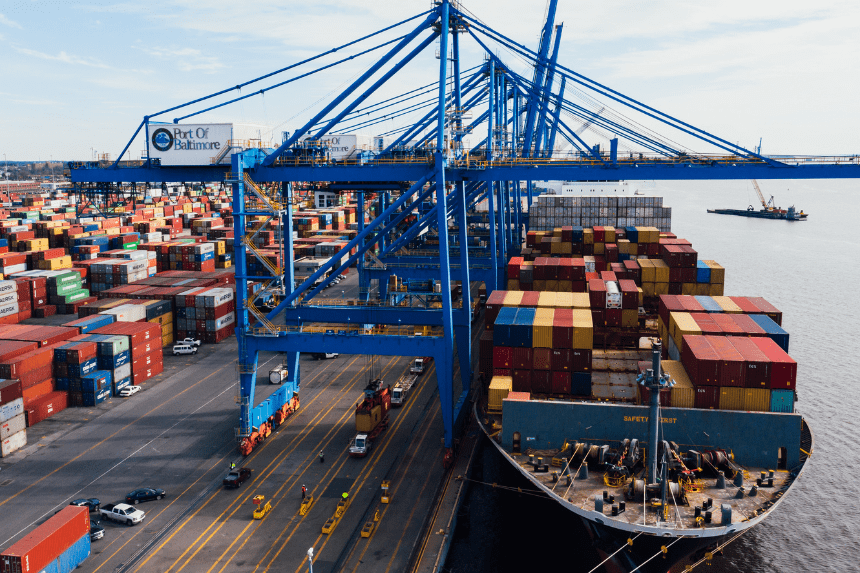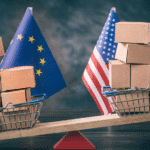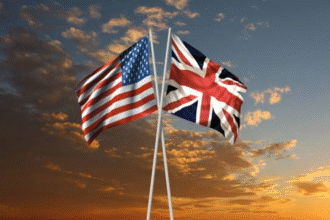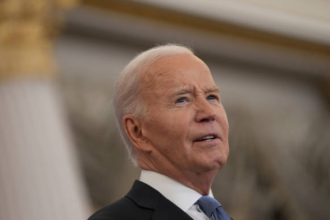The Trump administration’s attempts to change the dynamics of world commerce depend critically on the US port taxes on Chinese ships. This new set of policies seeks to promote US shipbuilding and lessen the financial load on Chinese ships running in US ports. This action marks a major change in US strategy since China now controls the worldwide maritime sector. These taxes are meant to challenge China’s maritime superiority and help to revive the US maritime industry.
Chinese ship US port fees: what are they?
Part of the US government’s larger plan to boost homegrown businesses and lower China’s hegemony in world shipping is US port fees paid on Chinese ships. Chinese-owned or run ships that call US ports will pay the fees. The type of cargo a ship carries, the quantity of containers it carries, and—in the case of vehicles-carrying ships—the quantity of vehicles carried will all affect these rates.
For instance, bulk transporters will pay a levy beginning at $50 per ton of goods, plus an additional $30 annually for the following three years. Chinese constructed container ships will charge $120 per container; non-US ships transporting vehicles will pay $150 every vehicle.
This phase of actions is part of a sequence meant to encourage US-built ships and generate a more competitive market for American shipyards. Although the costs are meant to be small, they tell China that the US is dedicated to lessening its reliance on foreign shipping fleets.
These levies are justified by their assistance to US companies by pushing the use of locally manufactured ships. The Trump government feels that China has greatly increased its influence over the shipping sector, therefore producing unfair competition for US businesses. The US government intends to establish a more equitable environment for American companies by imposing these taxes and assisting in reviving the nation’s shipbuilding industry.
How would US port fees on Chinese ships affect world trade?
Global trade is expected to be much affected by US port fees imposed on Chinese ships. China, one of the biggest maritime nations in the world, is crucial for the flow of goods across world seas. Particularly when companies strive to avoid the higher costs at US ports, the new taxes could cause changes in trade flows and shipping routes.
Already, some hints that rising costs might change world shipping trends. For instance, goods initially slated for US ports might now be diverted to European ports to avoid the additional taxes. This might affect port congestion around Europe, especially in big ports like Felixstowe in the UK and Rotterdam in the Netherlands.
Apart from changing cargo flows, the US port fees on Chinese ships might cause delays and lengthier shipping durations as vessels negotiate new paths. These delays could cause disruptions in the supply networks of companies depending on fast delivery dates. Importers could also have to review their cost systems since they pass the higher shipping charges on to customers.
Notwithstanding these difficulties, several analysts see chances for US companies presented by the additional levies. The fees could inspire more domestic manufacture and shipping, therefore generating new business prospects in the maritime and manufacturing industries.
Who will be free from US port fees on Chinese ships?
Although US port taxes on Chinese ships are broad-ranging, not every vessel will be liable for the fees. Certain ships are free from the fees as their particular purposes in international trade define their value. For instance, empty vessels arriving in the US to transport bulk exports like coal or grain will not be liable for the new costs. Usually part of international trade supporting US businesses and exports, these vessels are part of global trade, so the exemption is meant to guarantee a continuous flow of necessary trade.
Furthermore free from these taxes will be vessels moving commodities between US ports or to US territories such as the Caribbean. Furthermore not liable for these fees are the US and Canadian ships running in the Great Lakes. While still emphasizing the main objective of contesting China’s maritime supremacy, this focused approach helps minimize the disturbance to necessary trade.
These exemptions guarantee that important components of the world supply chain remain intact, therefore avoiding needless disturbance of important goods movement, but still exerting pressure on Chinese ships.
What Long-Term Effects on Consumers and Businesses Will Result?
Long-term consequences of US port tolls on Chinese ships would probably affect consumers as well as enterprises. increased shipping expenses for companies importing items from China will most certainly translate into increased product pricing. Companies depending on Chinese products could have to change their pricing strategies or search for substitutes in other areas to keep profitability.
The costs, meanwhile, could also encourage companies to change their supply chain policies. Some companies might look at new sourcing choices, for example, diversifying suppliers or raising US production. This change could encourage the development of home businesses and help to lessen dependency on Chinese imports.
Since companies pass on the higher shipping charges, US consumers are projected to suffer most from the price rises. Chinese imported goods including electronics, clothes, and other consumer items could start to cost more. Slower delivery dates could potentially follow from ships rerouting to other ports or experiencing congestion-related delays in cost of transportation.
Although the realignment of shipping lines may boost competitiveness among European suppliers, European consumers might not feel as immediately impacted. Businesses in the EU could gain from larger shipping volumes should goods keep being redirected to European ports; yet, they could also have difficulties managing more crowded ports.
How Will These Charges Affect US Shipbuilding and Future Maritime Policies?
The US government’s larger attempt to boost American shipbuilding includes the port fees paid on Chinese ships. China dominates the worldwide shipping sector, hence, the Trump government is trying to create conditions whereby US shipyards are more competitive. The levies will inspire businesses to buy US-built ships, therefore boosting the sector and generating new employment.
Further steps will be taken in the next years to assist US shipbuilding, especially for ships carrying liquefied natural gas (LNG) to These new rules will assist in encouraging US-made ships and equipment, supporting the marine industry’s economic development.
These measures could change the global shipping scene as the US strives for more control over its maritime system, therefore stimulating US manufacturing and shipbuilding. This change could inspire other nations to reconsider depending so much on foreign fleets and boost their homegrown sectors over time.
Final Thought: How US Port Fees Affect Chinese Ships
The Trump administration’s audacious and calculated action to undermine China’s hegemony in world shipping—the US port taxes on Chinese ships—represents that these taxes are meant to safeguard US companies and revive the US shipbuilding sector, even if they would cause disruptions in world trade and higher shipping costs.
China is the biggest maritime nation in the world, hence, US officials have long worried about its hegemony in world shipping. The US wants to make it more costly for Chinese vessels to operate in US territory by imposing these levies, thereby promoting the development of the home industry. Though it is yet unknown if these taxes would produce the intended results, they indicate a move toward a more protectionist trade policy in the US.
Whether using supply chain diversification or investment in US-made vessels, the ultimate success of the US port fees on Chinese ships will rely on how companies adjust to the changes. Businesses and consumers both have to get ready for the possible effects of this new regulation, which include higher prices and more protracted shipping times for now.








